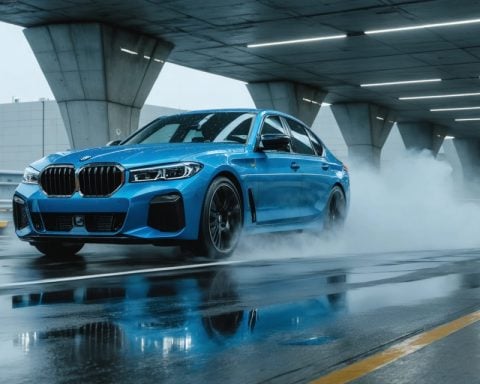Japanese automakers Honda and Nissan are gearing up for a potential collaboration that could reshape the automotive industry. Sources reveal that the two companies are considering a strategic partnership to manufacture vehicles at each other’s facilities. An official announcement regarding these merger discussions is anticipated soon.
As the second and third largest car manufacturers in Japan, Honda and Nissan could create a formidable alliance, potentially positioning themselves as the world’s third-largest automaker. Additionally, Mitsubishi Motors is looking to join these talks in 2025, further expanding the partnership’s footprint.
The two companies are especially interested in developing hybrid vehicles for the North American market, where demand for gasoline-electric options remains strong. They are also contemplating the formation of a holding company to better compete against international rivals in the burgeoning electric vehicle sector.
However, Honda is pushing for significant improvements in Nissan’s performance before finalizing any merger, particularly focusing on enhancing collaborative efforts in electric vehicle technology. Meanwhile, Taiwanese electronics titan Foxconn is in negotiations to buy Renault’s stake in Nissan, which could influence Honda and Nissan’s discussions.
With Nissan adjusting its profit forecast to reflect challenges in EV demand, primarily due to inadequate charging infrastructure in the U.S., the urgency for operational efficiencies has never been greater. As these automotive giants deliberate their future, the global market watches closely for developments.
Honda and Nissan’s Strategic Alliance: What It Means for the Automotive Industry
Introduction
Honda and Nissan, two of Japan’s automotive powerhouses, are reportedly exploring a strategic partnership that could transform the landscape of the auto industry. This potential alliance may see the companies manufacturing vehicles in each other’s facilities and signaling a significant shift in their approach to hybrid and electric vehicle (EV) production.
Potential Benefits of the Collaboration
1. Market Positioning: Together, Honda and Nissan could emerge as the third-largest automaker globally. This collaboration is poised to leverage their combined strengths and resources, increasing competitiveness against larger international firms.
2. Focus on Hybrid Vehicles: The two companies are particularly looking to enhance their offerings in the hybrid vehicle segment, catering to the robust demand in the North American market. This could lead to a wider range of gasoline-electric vehicles becoming available to consumers.
3. Formation of a Holding Company: Should the partnership solidify, there is speculation about creating a holding company to streamline operations and enhance joint efforts, especially in the electric vehicle arena.
Innovations and Developments
– Electric Vehicle Technology: Honda is emphasizing the need for Nissan to enhance its electric vehicle performance capabilities. This demand reflects a broader industry trend, as automakers worldwide seek to lead in EV technology amidst increasing environmental regulations and consumer preferences.
– Potential Inclusion of Mitsubishi Motors: Mitsubishi Motors has indicated interest in joining these discussions in 2025, which could broaden the collaboration and lead to more innovative vehicle offerings across the trio.
Challenges Ahead
Despite the promising prospects of this collaboration, there are substantial challenges:
– Nissan’s Performance Issues: Honda’s requirement for Nissan to demonstrate improved performance, particularly in collaboration on EV technologies, highlights the difficulties Nissan is facing as it adjusts its profit forecasts due to challenges in EV demand and infrastructure.
– Industry Competition: As the automotive landscape evolves, both companies will need to fortify their competitive edge against established and burgeoning players in the EV market.
Future Trends and Predictions
– Sustainability Focus: With the rise in consumer demand for greener vehicles, Honda and Nissan’s partnership will likely push towards more sustainable practices and innovations within their manufacturing processes.
– Technological Innovations: The collaboration will enable shared resources for research and development, promoting rapid technological advancements in hybrid and electric vehicle designs.
Pricing and Market Analysis
As automotive giants navigate partnerships and collaborations, pricing strategies will be critical. The formation of a joint effort could ideally lead to more competitive pricing structures for hybrid and electric vehicles, directly benefiting consumers.
Conclusion
The potential collaboration between Honda and Nissan underscores a significant trend in the automotive industry towards greater collaboration among manufacturers. As these discussions unfold, they may pave the way for innovations that not only enhance vehicle performance but also align with global sustainability goals. For those interested in the dynamics of the automotive sector, staying informed about these developments will be crucial.
For more insights into the evolving automotive landscape, visit Nissan Global and Honda Japan.













